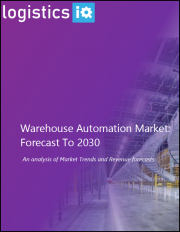
|
시장보고서
상품코드
1572694
창고 로봇 및 자동화 시장 : 유형별, 조직 규모별, 적용 분야별, 산업별, 지역별(-2032년)Global Warehouse Robotics and Automation Market Research Report By Type, by Organization Size, by Application Area, by Industry Vertical, and By Region -Industry Forecast Till 2032 |
||||||
창고 로봇 및 자동화 시장 규모는 2023년 258억 6,620만 달러, 2024년 298억 4,960만 달러에서 예측 기간 동안 7.9%의 CAGR을 기록하며 2032년에는 548억 1,300만 달러 규모로 성장할 것으로 예상됩니다.
클라우드 기반 소프트웨어와 로봇공학을 결합하여 창고업자는 주문 처리 요구를 충족시킬 수 있습니다. 창고 로봇 및 창고 서비스 자동화에 대한 수요는 지속적으로 증가하고 있으며, 기존 운영을 중단하지 않고 신속하게 도입할 수 있는 지능형 솔루션을 식별하는 것이 필수적입니다. 미래에는 사람과 기계가 창고 업무에서 협업하는 것이 일반화될 것으로 예상됩니다.
지역적 관점
미국, 캐나다, 멕시코로 구성된 북미의 역동적인 제조 부문은 여전히 자산, 고용 및 혁신의 주요 원천이며, IoT가 인기를 끌면서 미국 기업들은 자동화된 스토리지 솔루션을 활용하여 시간과 비용을 절감하고 있습니다. 자동화된 스토리지 시스템은 원격 모니터링, 신속한 상태 보고, 빠른 오류 복구, 생산성 향상 등을 촉진하고 있습니다.
산업 자동화는 유럽에서 처음 도입되었습니다. 외무부 CBI에 따르면 유럽은 전 세계 인더스트리 4.0 투자의 3분의 1 이상을 차지합니다. 주요 시장은 서유럽과 북유럽에 있으며, 특히 이 용어가 처음 사용되었고 현재도 시장을 선도하고 있는 독일에 중점을 두고 있습니다.
아시아태평양의 제조업은 큰 변화를 겪고 있습니다. 클라우드, 모바일 신기술, 로봇공학 등 혁신을 가속화하는 기술을 빠르게 도입하는 것이 필수적이라는 것은 이미 널리 알려져 있으며, The Economics Times는 2022년 12월에 인도에서 새로운 시설을 건설하기 위해 3,000만 평방피트가 더 필요할 것이라고 보도했습니다.
세계 창고 로봇 및 자동화 시장을 조사했으며, 시장의 정의와 개요, 시장 성장에 영향을 미치는 각종 영향요인 분석, 시장 규모 추정 및 예측, 각종 부문별·지역별·주요 국가별 분석, 경쟁 환경, 주요 기업 프로파일 등의 정보를 정리하여 전해드립니다.
목차
제1장 주요 요약
제2장 시장 개요
제3장 조사 방법
제4장 시장 역학
- 성장 촉진요인
- E-Commerce 수요 증가
- 노동력 최적화와 노동력 부족
- 업무 효율화와 비용 절감의 필요성
- AI와 로보틱스의 기술적 진보
- 성장 억제요인
- 초기 자본 투자액 높이
- 기존 시스템과의 통합의 복잡성
- 운영·보수 을 위한 숙련 노동력의 부족
- 고용 상실에 대한 우려
- 기회
- IoT와 머신러닝의 진보
- 클라우드 기반 솔루션 채용 증가
- 동향
- 자율이동로봇(AMR)의 도입 증가
- 실시간 감시를 위한 IoT의 통합
- 유연하고 확장 가능한 솔루션으로의 이동
- 협동 로봇(코봇) 개발
- 과제
- 사이버 보안 리스크와 데이터 프라이버시 우려
- 다양한 지역의 규제와 컴플라이언스 문제
- 레거시 시스템과의 통합
- COVID-19의 영향 분석
제5장 시장 요인 분석
- 공급망 분석
- Porter's Five Forces 분석
제6장 세계의 창고 로봇 및 자동화 시장 : 유형별
- 개요
- 자동 창고 시스템(AS/RS)
- 유닛 로드 AS/RS
- 미니 로드 AS/RS
- 셔틀 기반 AS/RS
- 컨베이어·분류 시스템
- 벨트 컨베이어
- 롤러 컨베이어
- 소터
- 로봇 시스템
- 자율 이동 로봇(AMR)
- 다관절 로봇
- 협동 로봇(코봇)
- 무인운반차(AGV)
- 자동 피킹 시스템
- 풋 투 라이트 시스템
- 보이스 피킹 시스템
- 자동 자재관리 시스템
- 팔레타이저·디팰러타이저
- 갠트리 로봇
- 오버헤드 시스템
제7장 세계의 창고 로봇 및 자동화 시장 : 조직 규모별
- 중소기업
- 대기업
제8장 세계의 창고 로봇 및 자동화 시장 : 용도별
- 픽업·배치
- 소트
- 포장·밀봉
- 운송·물류
- 보관·검색
- 품질 관리·검사
- 기타
제9장 세계의 창고 로봇 및 자동화 시장 : 산업별
- E-Commerce
- 소매
- 헬스케어·의약품
- 전자·전기
- 화학제품
- 3PL(제3자 물류)
- 제조
- 기타
제10장 세계의 창고 로봇 및 자동화 시장 : 지역별
- 개요
- 북미
- 유럽
- 아시아태평양
- 중동 및 아프리카
- 남미
제11장 경쟁 상황
- 경쟁 대시보드
- 기업 점유율 분석
- 주요 전개·성장 전략
제12장 기업 개요
- DAIFUKU CO. LTD
- KARDEX
- MURATA MACHINERY LTD.(MURATEC)
- HONEYWELL INTERNATIONAL INC
- BOSTON DYNAMICS(HYUNDAI MOTOR GROUP)
- ABB LTD
- SWISSLOG HOLDING AG(A KUKA COMPANY)
- TOYOTA INDUSTRIES CORPORATION
- SSI SCHAEFER
- VANDERLANDE
데이터 인용
ksm 24.10.25Global Warehouse Robotics and Automation Market Research Report By Type (Automated Storage and Retrieval Systems (AS/RS), Conveyors and Sortation Systems, Robotics Systems, Automated Picking Systems and Automated Material Handling Systems), by Organization Size (Small and Medium-Sized Enterprises (SMEs) and Large Enterprises), by Application Area (Picking and Placing, Sorting, Packing and Sealing, Transportation and Logistics, Storage and Retrieval, Quality Control and Inspection and Others), by Industry Vertical (E-commerce, Retail, Healthcare and Pharmaceuticals, Electronics and Electrical, Chemicals, 3PL (Third-Party Logistics), Manufacturing and Others), and By Region -Industry Forecast Till 2032
Market Overview
In 2023, the market size of warehouse robotics and automation was estimated to be USD 25,866.2 million. The Warehouse Robotics and Automation Market industry is anticipated to experience a compound annual growth rate (CAGR) of 7.9 % from USD 29,849.6 million in 2024 to USD 54,813.0 million by 2032. The utilization of an automated system and machine (or robots) to facilitate the routine operations of a warehouse is referred to as warehouse robotics. This discipline encompasses both the tangible robots and the software that is employed to operate them. These are primarily employed in warehouse automation, where they can either supplement or replace human input in the handling of products, picking of orders, and storage. In general, a warehouse robot is a single-purpose robot that is programmed to perform a specific task and is controlled by software.
A combination of cloud-based software and robotics will enable warehouses to capitalize on current market developments and satisfy the demands of modern fulfillment. Regrettably, numerous warehouses continue to function without automation. The demand for warehouse services is on the rise, and it is imperative to identify intelligent solutions that can be implemented swiftly and without disrupting existing operations. People and machines will collaborate in warehouse operations in the future.
Market segment insights
The global warehouse robotics and automation market is segmented into the following categories: automated storage and retrieval systems (AS/RS), conveyors and sortation systems, robotics systems, automated selecting systems, and automated material handling systems. This segmentation is based on type.
The Warehouse Robotics and Automation Market has been divided into Small and Medium Enterprises (SME) and Large Enterprises (LE) according to organizational size.
The Warehouse Robotics and Automation Market has been segmented into the following categories: picking and placing, sorting, packaging and sealing, transportation and logistics, storage and retrieval, quality control and inspection, and others, all of which are based on the Application Area.
Regional Perspectives
The United States, Canada, and Mexico comprise North America. This has resulted in the region's dynamic manufacturing sector remaining the primary source of wealth, employment, and innovation. The Internet of Things (IoT) is gaining popularity, and businesses in the United States are utilizing automated storage solutions to save even more time and money. Remote monitoring, prompt report status production, quicker error recovery, and increased productivity are all facilitated by automated storage systems that integrate with the Internet of Things.
The investigation encompasses the following regions: the United Kingdom, Germany, France, and the rest of Europe. Industrial automation was initially implemented in Europe. According to the CBI Ministry of Foreign Affairs, Europe is the site of more than one-third of all global Industry 4.0 investments. Its primary markets are located in Western and Northern Europe, with a particular emphasis on Germany, the country where the phrase was first employed and remains the market leader.
The manufacturing industries of the Asia Pacific region have experienced a substantial transformation over time. It is now widely acknowledged that it is imperative to promptly incorporate innovation accelerators, which include emerging cloud and mobile technologies and robotics. The Economics Times reported in December 2022 that India would require an additional 30 million square feet to construct new facilities.
Major Players
The primary vendors in the bazaar DAIFUKU CO. is among the industry leaders. At present, the industry's leading participants are LTD, Kardex, Murata Machinery, Honeywell International Inc., Boston Dynamics (Hyundai Motor Group), ABB LTD, Swisslog Holding AG (A Kuka Company), Toyota Industries Corporation, SSI Schaefer, and Vanderlande.
TABLE OF CONTENTS
1 EXECUTIVE SUMMARY
2 MARKET INTRODUCTION
- 2.1 DEFINITION
- 2.2 SCOPE OF THE STUDY
- 2.3 RESEARCH OBJECTIVE
- 2.4 MARKET STRUCTURE
3 RESEARCH METHODOLOGY
- 3.1 OVERVIEW
- 3.2 DATA FLOW
- 3.2.1 DATA MINING PROCESS
- 3.3 PURCHASED DATABASE:
- 3.4 SECONDARY SOURCES:
- 3.4.1 SECONDARY RESEARCH DATA FLOW:
- 3.5 PRIMARY RESEARCH:
- 3.5.1 PRIMARY RESEARCH DATA FLOW:
- 3.5.2 PRIMARY RESEARCH: NUMBER OF INTERVIEWS CONDUCTED
- 3.5.3 PRIMARY RESEARCH: REGIONAL COVERAGE
- 3.6 APPROACHES FOR MARKET SIZE ESTIMATION:
- 3.6.1 REVENUE ANALYSIS APPROACH
- 3.7 DATA FORECASTING
- 3.7.1 DATA FORECASTING TECHNIQUE
- 3.8 DATA MODELING
- 3.8.1 MICROECONOMIC FACTOR ANALYSIS:
- 3.8.2 DATA MODELING:
- 3.9 TEAMS AND ANALYST CONTRIBUTION
4 MARKET DYNAMICS
- 4.1 INTRODUCTION
- 4.2 DRIVERS
- 4.2.1 RISING E-COMMERCE DEMAND
- 4.2.2 LABOR OPTIMIZATION AND SCARCE WORKFORCE
- 4.2.3 NEED FOR OPERATIONAL EFFICIENCY AND COST REDUCTION
- 4.2.4 TECHNOLOGICAL ADVANCEMENTS IN AI AND ROBOTICS.
- 4.3 RESTRAINTS
- 4.3.1 HIGH INITIAL CAPITAL INVESTMENT
- 4.3.2 COMPLEX INTEGRATION WITH EXISTING SYSTEMS
- 4.3.3 LACK OF SKILLED WORKFORCE FOR OPERATION AND MAINTENANCE
- 4.3.4 CONCERNS OVER JOB DISPLACEMENT
- 4.4 OPPORTUNITY
- 4.4.1 ADVANCEMENTS IN IOT AND MACHINE LEARNING
- 4.4.2 INCREASING ADOPTION OF CLOUD-BASED SOLUTIONS
- 4.5 TRENDS
- 4.5.1 INCREASED ADOPTION OF AUTONOMOUS MOBILE ROBOTS (AMRS)
- 4.5.2 INTEGRATION OF IOT FOR REAL-TIME MONITORING
- 4.5.3 SHIFT TOWARDS FLEXIBLE AND SCALABLE SOLUTIONS
- 4.5.4 DEVELOPMENT OF COLLABORATIVE ROBOTS (COBOTS)
- 4.6 CHALLENGES
- 4.6.1 CYBERSECURITY RISKS AND DATA PRIVACY CONCERNS
- 4.6.2 REGULATORY AND COMPLIANCE ISSUES IN DIFFERENT REGIONS
- 4.6.3 INTEGRATION WITH LEGACY SYSTEMS
- 4.7 COVID-19 IMPACT ANALYSIS
- 4.7.1 IMPACT ON SEMI INDUSTRY
- 4.7.2 IMPACT ON VERTICALS.
5 MARKET FACTOR ANALYSIS
- 5.1 SUPPLY CHAIN ANALYSIS
- 5.1.1 RAW MATERIAL SUPPLIERS:
- 5.1.2 COMPONENT MANUFACTURERS:
- 5.1.3 ROBOTIC SYSTEM MANUFACTURERS:
- 5.1.4 SOFTWARE AND AI DEVELOPERS:
- 5.1.5 SYSTEM INTEGRATORS:
- 5.1.6 DISTRIBUTORS:
- 5.1.7 END USERS:
- 5.2 PORTER'S FIVE FORCES MODEL
- 5.2.1 THREAT OF NEW ENTRANTS
- 5.2.2 BARGAINING POWER OF SUPPLIERS
- 5.2.3 BARGAINING POWER OF BUYERS
- 5.2.4 THREAT OF SUBSTITUTES
- 5.2.5 COMPETITIVE RIVALRY
6 GLOBAL WAREHOUSE ROBOTICS AND AUTOMATION MARKET, BY TYPE
- 6.1 OVERVIEW
- 6.2 AUTOMATED STORAGE AND RETRIEVAL SYSTEMS (AS/RS)
- 6.2.1 UNIT LOAD AS/RS
- 6.2.2 MINI LOAD AS/RS
- 6.2.3 SHUTTLE-BASED AS/RS
- 6.3 CONVEYORS AND SORTATION SYSTEMS
- 6.3.1 BELT CONVEYORS
- 6.3.2 ROLLER CONVEYORS
- 6.3.3 SORTERS
- 6.4 ROBOTICS SYSTEMS
- 6.4.1 AUTONOMOUS MOBILE ROBOTS (AMRS)
- 6.4.2 ARTICULATED ROBOTS
- 6.4.3 COLLABORATIVE ROBOTS (COBOTS)
- 6.4.4 AUTOMATED GUIDED VEHICLES (AGVS)
- 6.5 AUTOMATED PICKING SYSTEMS
- 6.5.1 PUT-TO-LIGHT SYSTEMS
- 6.5.2 VOICE PICKING SYSTEMS
- 6.6 AUTOMATED MATERIAL HANDLING SYSTEMS
- 6.6.1 PALLETIZERS AND DEPALLETIZERS
- 6.6.2 GANTRY ROBOTS
- 6.6.3 OVERHEAD SYSTEMS
7 GLOBAL WAREHOUSE ROBOTICS AND AUTOMATION MARKET, BY ORGANIZATION SIZE
- 7.1 INTRODUCTION
- 7.2 SMALL AND MEDIUM-SIZED ENTERPRISES (SMES)
- 7.3 LARGE ENTERPRISES
8 GLOBAL WAREHOUSE ROBOTICS AND AUTOMATION MARKET, BY APPLICATION AREA
- 8.1 INTRODUCTION
- 8.2 PICKING AND PLACING
- 8.3 SORTING
- 8.4 PACKING AND SEALING
- 8.5 TRANSPORTATION AND LOGISTICS
- 8.6 STORAGE AND RETRIEVAL
- 8.7 QUALITY CONTROL AND INSPECTION
- 8.8 OTHERS
9 GLOBAL WAREHOUSE ROBOTICS AND AUTOMATION MARKET, BY INDUSTRY VERTICAL
- 9.1 INTRODUCTION
- 9.2 E-COMMERCE
- 9.3 RETAIL
- 9.4 HEALTHCARE AND PHARMACEUTICALS
- 9.5 ELECTRONICS AND ELECTRICAL
- 9.6 CHEMICALS
- 9.7 3PL (THIRD-PARTY LOGISTICS)
- 9.8 MANUFACTURING
- 9.9 OTHERS
10 GLOBAL WAREHOUSE ROBOTICS AND AUTOMATION MARKET, BY REGION
- 10.1 OVERVIEW
- 10.1.1 GLOBAL WAREHOUSE ROBOTICS AND AUTOMATION MARKET, BY REGION, 2023 VS 2032 (USD MILLION)
- 10.1.2 GLOBAL WAREHOUSE ROBOTICS AND AUTOMATION MARKET, BY REGION, 2019-2032 (USD MILLION)
- 10.2 NORTH AMERICA
- 10.2.1 US
- 10.2.2 CANADA
- 10.2.3 MEXICO
- 10.3 EUROPE
- 10.3.1 UK
- 10.3.2 GERMANY
- 10.3.3 FRANCE
- 10.3.4 ITALY
- 10.3.5 SPAIN
- 10.3.6 NETHERLANDS
- 10.3.7 BELGIUM
- 10.3.8 REST OF EUROPE
- 10.4 ASIA-PACIFIC
- 10.4.1 CHINA
- 10.4.2 JAPAN
- 10.4.3 INDIA
- 10.4.4 SOUTH KOREA
- 10.4.5 INDONESIA
- 10.4.6 MALAYSIA
- 10.4.7 SINGAPORE
- 10.4.8 TAIWAN
- 10.4.9 REST OF ASIA-PACIFIC
- 10.5 MIDDLE EAST & AFRICA
- 10.5.1 GCC COUNTRIES
- 10.5.2 SOUTH AFRICA
- 10.5.3 REST OF MIDDLE EAST & AFRICA
- 10.6 SOUTH AMERICA
- 10.6.1 BRAZIL
- 10.6.2 CHILE
- 10.6.3 REST OF SOUTH AMERICA
11 COMPETITIVE LANDSCAPE
- 11.1 INTRODUCTION
- 11.2 COMPETITOR DASHBOARD
- 11.3 COMPANY MARKET SHARE ANALYSIS, 2023 (VALUE)
- 11.4 COMPANY MARKET SHARE ANALYSIS, 2023 (VOLUME)
- 11.5 KEY DEVELOPMENTS & GROWTH STRATEGIES
- 11.5.1 NEW PRODUCT LAUNCH/ DEVELOPMENT
- 11.5.2 MERGER & ACQUISITION
- 11.5.3 PARTNERSHIP/COLLABORATION, INVESTMENT, EXPANSION, AND OTHERS
12 COMPANY PROFILES
- 12.1 DAIFUKU CO. LTD
- 12.1.1 COMPANY OVERVIEW
- 12.1.2 FINANCIAL OVERVIEW
- 12.1.3 PRODUCTS OFFERED
- 12.1.4 KEY DEVELOPMENTS
- 12.1.5 SWOT ANALYSIS
- 12.1.6 KEY STRATEGIES:
- 12.2 KARDEX
- 12.2.1 COMPANY OVERVIEW
- 12.2.2 FINANCIAL OVERVIEW
- 12.2.3 PRODUCTS OFFERED
- 12.2.4 KEY DEVELOPMENTS
- 12.2.5 SWOT ANALYSIS
- 12.2.6 KEY STRATEGIES
- 12.3 MURATA MACHINERY LTD. (MURATEC)
- 12.3.1 COMPANY OVERVIEW
- 12.3.2 FINANCIAL OVERVIEW
- 12.3.3 PRODUCTS OFFERED
- 12.3.4 KEY DEVELOPMENTS
- 12.3.5 SWOT ANALYSIS
- 12.3.6 KEY STRATEGIES
- 12.4 HONEYWELL INTERNATIONAL INC
- 12.4.1 COMPANY OVERVIEW
- 12.4.2 FINANCIAL OVERVIEW
- 12.4.3 PRODUCTS OFFERED
- 12.4.4 KEY DEVELOPMENTS
- 12.4.5 SWOT ANALYSIS
- 12.4.6 KEY STRATEGIES
- 12.5 BOSTON DYNAMICS (HYUNDAI MOTOR GROUP)
- 12.5.1 COMPANY OVERVIEW
- 12.5.2 FINANCIAL OVERVIEW
- 12.5.3 PRODUCTS OFFERED
- 12.5.4 KEY DEVELOPMENTS
- 12.5.5 SWOT ANALYSIS
- 12.5.6 KEY STRATEGIES
- 12.6 ABB LTD
- 12.6.1 COMPANY OVERVIEW
- 12.6.2 FINANCIAL OVERVIEW
- 12.6.3 PRODUCTS OFFERED
- 12.6.4 KEY DEVELOPMENTS
- 12.6.5 SWOT ANALYSIS
- 12.6.6 KEY STRATEGIES
- 12.7 SWISSLOG HOLDING AG (A KUKA COMPANY)
- 12.7.1 COMPANY OVERVIEW
- 12.7.2 FINANCIAL OVERVIEW
- 12.7.3 PRODUCTS OFFERED
- 12.7.4 KEY DEVELOPMENTS
- 12.7.5 SWOT ANALYSIS
- 12.7.6 KEY STRATEGIES
- 12.8 TOYOTA INDUSTRIES CORPORATION
- 12.8.1 COMPANY OVERVIEW
- 12.8.2 FINANCIAL OVERVIEW
- 12.8.3 PRODUCTS OFFERED
- 12.8.4 KEY DEVELOPMENTS
- 12.8.5 SWOT ANALYSIS
- 12.8.6 KEY STRATEGIES
- 12.9 SSI SCHAEFER
- 12.9.1 COMPANY OVERVIEW
- 12.9.2 FINANCIAL OVERVIEW
- 12.9.3 PRODUCTS OFFERED
- 12.9.4 KEY DEVELOPMENTS
- 12.9.5 SWOT ANALYSIS
- 12.9.6 KEY STRATEGIES
- 12.10 VANDERLANDE
- 12.10.1 COMPANY OVERVIEW
- 12.10.2 FINANCIAL OVERVIEW
- 12.10.3 PRODUCTS OFFERED
- 12.10.4 KEY DEVELOPMENTS
- 12.10.5 SWOT ANALYSIS
- 12.10.6 KEY STRATEGIES
DATA CITATIONS 426



















